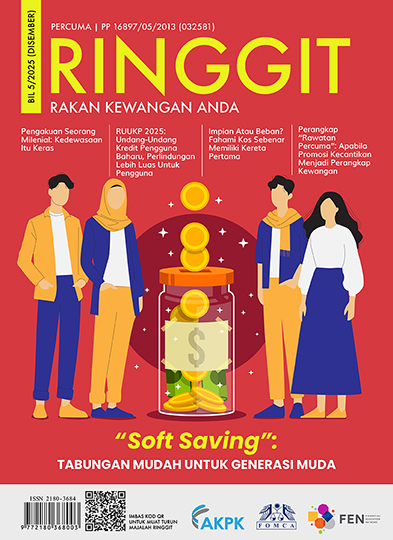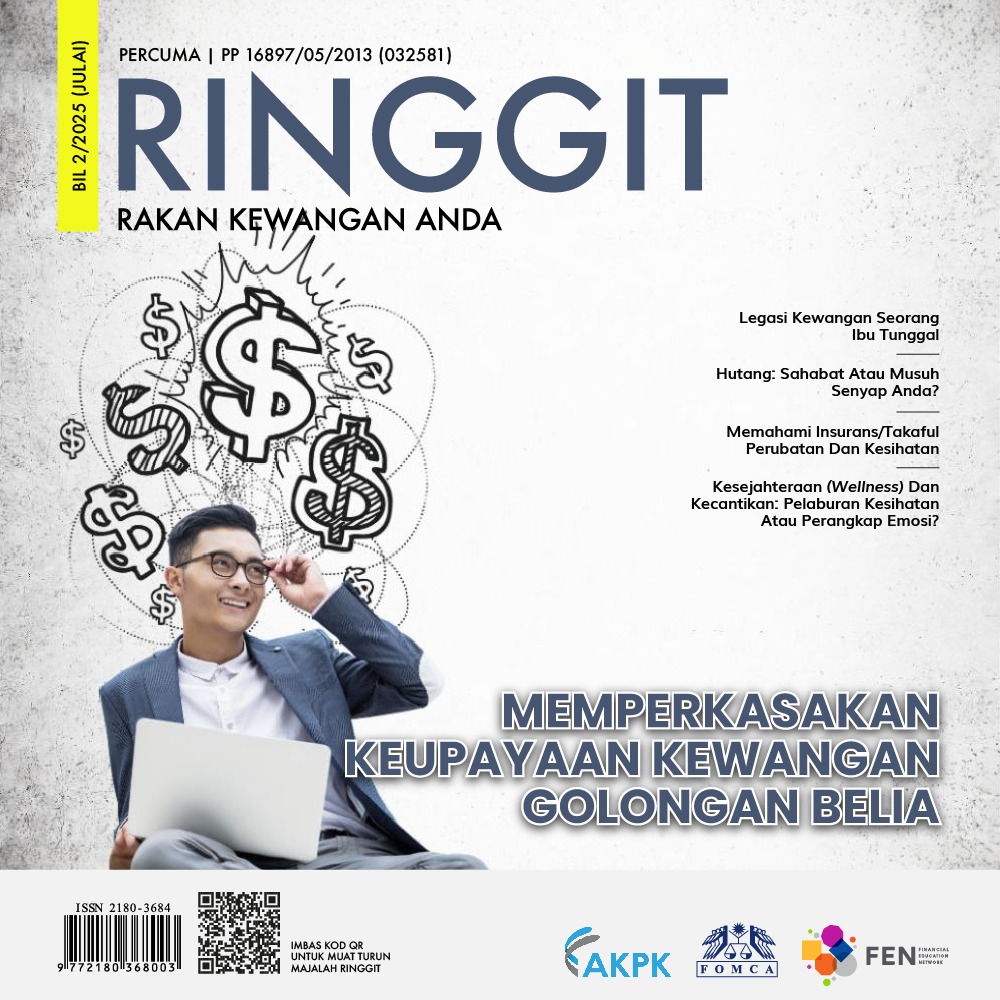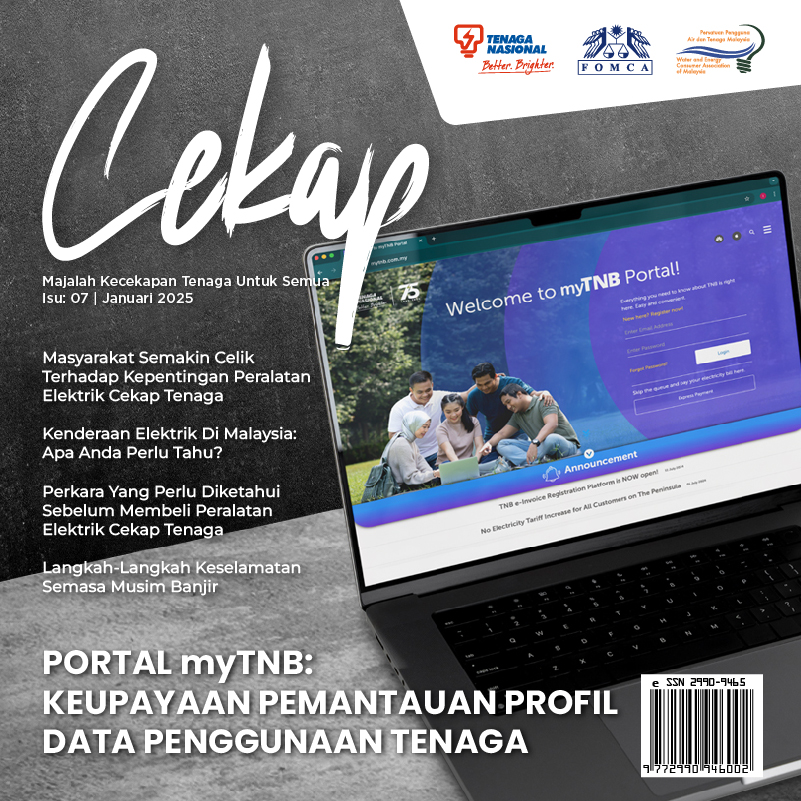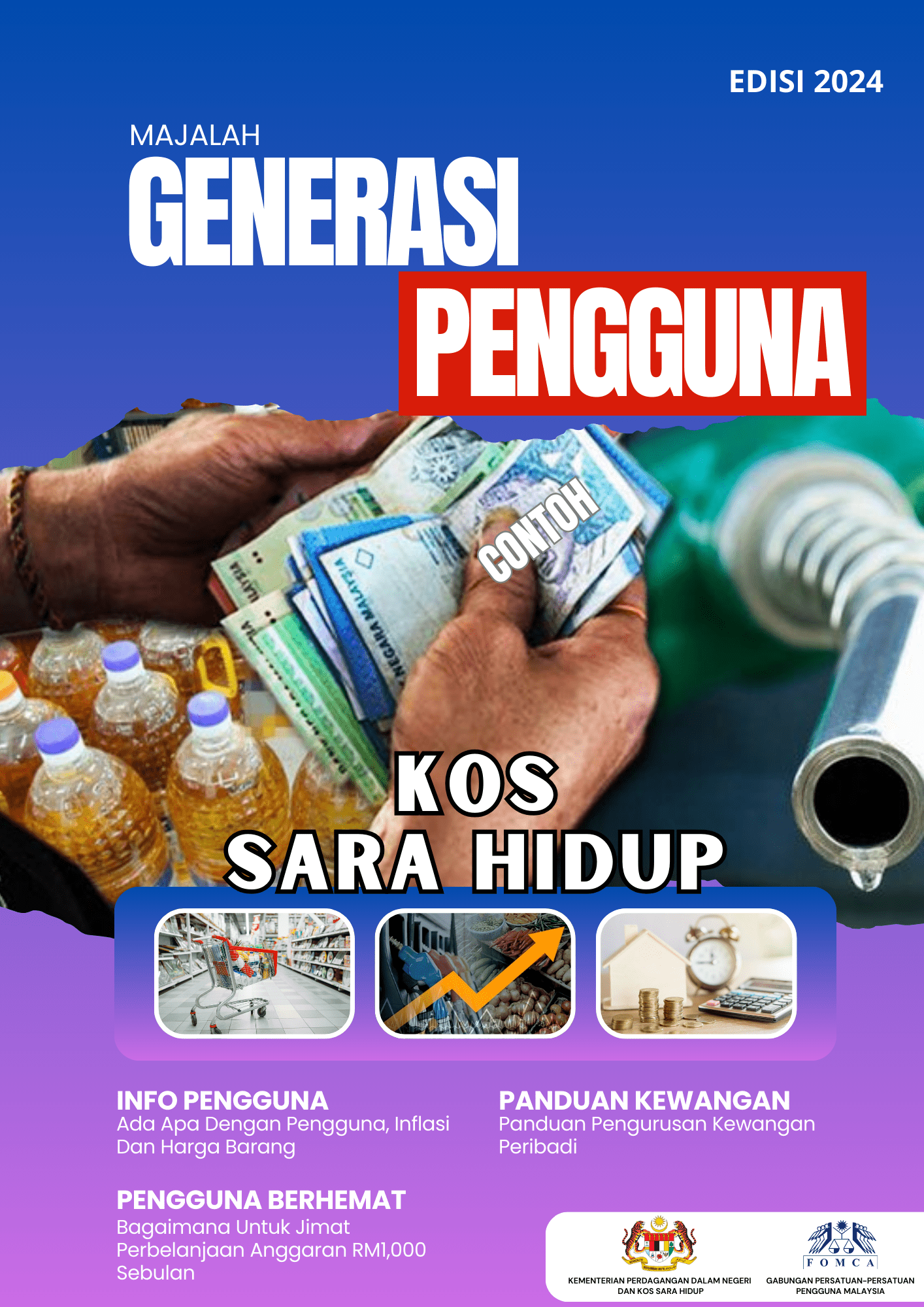No intimidation allowed
- Details
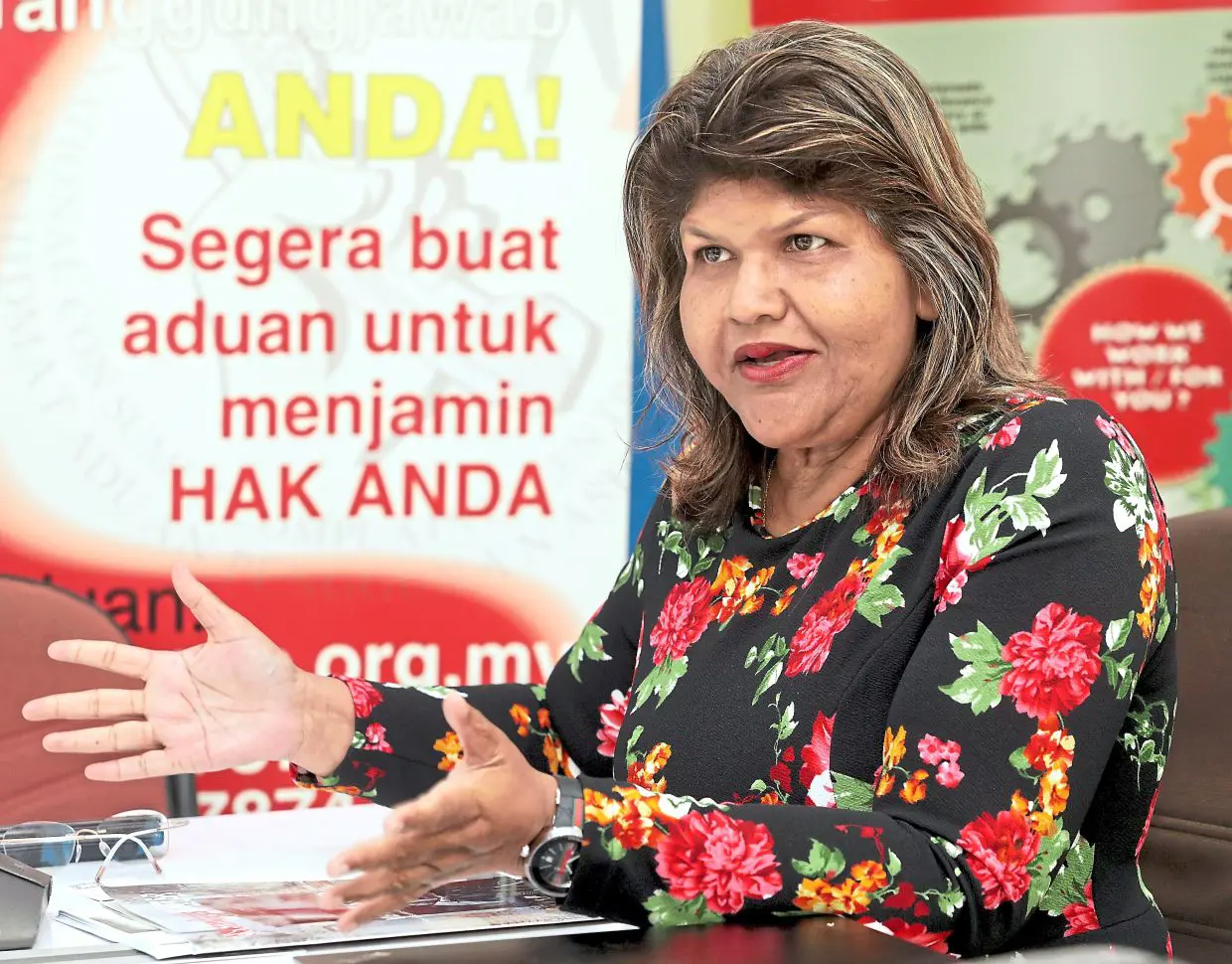 PETALING JAYA: In Malaysia, old debts can’t haunt you forever.
PETALING JAYA: In Malaysia, old debts can’t haunt you forever.
Thanks to the Limitation Act, many debts vanish after six years, unless the debtor acknowledges them.
And any attempt to revive these “time-barred” debts through intimidation or coercion is unlawful.
Federation of Malaysian Consumers Associations (Fomca) vice-president Datuk Indrani Thuraisingham said that Fomca, through the National Consumer Complaints Centre, frequently receives reports of harassment over old debts, some dating back nearly 30 years.
“They usually involve threats of blacklisting, misleading instalment plans and a lack of transparency when banks sell old debts to third-party collectors,” she said.
She said Malaysians should know their rights in the face of aggressive debt collection practices.
“We must know that under the Limitation Act, most debts become legally unenforceable after six years unless legal action has been taken within that period.
Household size, dependents must be factored in RON95 subsidy eligibility say groups
- Details
 KUALA LUMPUR: The government's decision to factor in household income, property and luxury vehicle ownership to determine eligibility for the RON95 fuel subsidy must be broadened to reflect a more accurate picture of household well-being, said the Federation of Malaysian Consumers Associations (Fomca).
KUALA LUMPUR: The government's decision to factor in household income, property and luxury vehicle ownership to determine eligibility for the RON95 fuel subsidy must be broadened to reflect a more accurate picture of household well-being, said the Federation of Malaysian Consumers Associations (Fomca).
Its chief executive officer, T. Saravanan, said household size and the number of dependents should also be taken into account, as they directly affect how far a family's income can stretch.
"Regional differences in the cost of living also play a major role, as urban households face significantly higher expenses compared to rural ones.
"Additionally, special circumstances such as medical burdens, single-parent families or households caring for disabled members should not be ignored," he told the New Straits Times.
Earlier, the government announced that ownership of property and luxury vehicles, alongside monthly income, will now be among the benchmarks in determining eligibility for the RON95 subsidy, as part of efforts to phase out blanket subsidies and channel aid to those most in need.
Saravanan said the current criteria were not sufficient to capture the full financial pressures faced by families.
Read more: Household size, dependents must be factored in RON95 subsidy eligibility say groups
Buyers trapped for years hope Build-Then-Sell model ends housing nightmares
- Details
 KUALA LUMPUR: In 2018, Mohd Shahrizan Sukirman signed an agreement to buy a property in Gombak for RM299,900.
KUALA LUMPUR: In 2018, Mohd Shahrizan Sukirman signed an agreement to buy a property in Gombak for RM299,900.
Fast forward to 2025, the house is still not ready. However, he is still paying RM1,600 in monthly instalments.
He believed that the "Build-then-Sell" (BTS) model could save other house buyers from his fate.
"If a developer manages to fully complete the houses before selling them, it will give confidence to buyers. That way, there will be no cases of abandoned housing projects."
On the planned incentives for housing developers that adopt the BTS model, he said it should also address the plight of buyers like him.
Meanwhile, Federation of Malaysian Consumers Associations chief executive officer Dr Saravanan Thambirajah said the incentives were a step towards rebalancing risks between developers and buyers.
He said affected buyers could not wait until 2030 for stronger protections, adding that abandoned and delayed housing projects continued to cause hardship to buyers and their families.
He urged the government to set clear timelines and enforcement mechanisms to phase in BTS well before 2030.
He said incentives could ease developers' financing concerns.
Saravanan also highlighted concerns with the "Sell-then-Build" model, which "exposes consumers to severe risks if projects are delayed or abandoned, leaving families burdened with loans but without homes".
Malaysian homeowners not protected in current form of Urban Renewal Act, says Fomca
- Details

“The Act is too far-reaching, and too dangerous to be rushed into Parliament without a fundamental revamp and genuine stakeholder consultation. At stake are the very homes, livelihoods, and security of Malaysian families,” he said.
Saravanan added that safeguards must be put in place to protect homeowners, as developers have been approaching residents with half-truths and promises that are either misleading or incomplete or applying pressure to sign consent documents.
“For most Malaysians, a home is their largest lifetime investment, built through decades of hard work and representing priceless family memories. To expose citizens to such risks without strong safeguards is unacceptable,” he added.
Saravanan then said that if the URA is introduced in its current state, it will tilt the balance dangerously in favour of developers, effectively becoming a developers’ charter instead of a people’s charter.
“Fomca insists that a 95% consent threshold is the only acceptable safeguard. Any lower threshold — whether 75 or 80% — would open the door to forced displacement,” he added.
Read more: Malaysian homeowners not protected in current form of Urban Renewal Act, says Fomca
(BM) FOMCA SIARAN MEDIA: AKTA PEMBAHARUAN BANDAR MESTI DIROMBAK — KERAJAAN DAN AHLI PARLIMEN WAJIB DENGAR SUARA RAKYAT SEBELUM DIBENTANG
- Details
TARIKH SIARAN: 22 OGOS 2025
 Kepada Ketua Editor,
Kepada Ketua Editor,
SIARAN MEDIA: AKTA PEMBAHARUAN BANDAR MESTI DIROMBAK — KERAJAAN DAN AHLI PARLIMEN WAJIB DENGAR SUARA RAKYAT SEBELUM DIBENTANG
Gabungan Persatuan-persatuan Pengguna Malaysia (FOMCA) menggesa Kerajaan untuk menangguhkan pembentangan Rang Undang-Undang Akta Pembaharuan Bandar (URA) yang sedia ada. Akta ini terlalu sensitif, memberi kesan besar kepada rakyat, dan amat berisiko jika dibawa ke Parlimen tanpa rombakan menyeluruh serta rundingan yang telus dan inklusif bersama pihak berkepentingan. Apa yang dipertaruhkan bukan sekadar bangunan atau tanah, tetapi rumah, mata pencarian, dan keselamatan hidup rakyat Malaysia.
Walaupun konsep pembaharuan bandar boleh membawa manfaat seperti pemodenan infrastruktur dan menaik taraf kemudahan awam, namun Malaysia masih belum bersedia untuk melaksanakan undang-undang ini. Laporan di lapangan menunjukkan pemaju telah pun mendekati penduduk dengan janji-janji yang mengelirukan, maklumat yang tidak lengkap, atau sengaja dimanipulasi untuk memujuk pemilik rumah supaya memberi persetujuan. Lebih membimbangkan, terdapat juga insiden intimidasi yang menekan penduduk untuk menandatangani dokumen persetujuan. Bagi majoriti rakyat Malaysia, rumah adalah pelaburan terbesar sepanjang hayat — hasil titik peluh bertahun-tahun dan lambang kenangan keluarga. Adalah zalim jika rakyat dipaksa menerima risiko kehilangan rumah mereka tanpa perlindungan undang-undang yang kukuh.
Sekiranya URA dikuatkuasa, keseimbangan kuasa akan berpihak sepenuhnya kepada pemaju. Akta ini berpotensi menjadi “piagam pemaju” dan bukan “piagam rakyat”. Justeru, FOMCA menegaskan bahawa ambang persetujuan minimum sebanyak 95 peratus daripada pemilik rumah yang terlibat mesti dijadikan syarat mandatori. Ambang yang lebih rendah, seperti 75 atau 80 peratus, bererti sejumlah besar keluarga berisiko kehilangan rumah mereka walaupun mereka tidak bersetuju. Dalam sebuah blok yang mempunyai 100 unit, ambang 80 peratus membolehkan 20 keluarga dipaksa keluar walaupun mereka menolak. Ramai daripada mereka yang membantah mungkin mempunyai alasan yang kukuh seperti masalah kewangan, nilai sentimental, atau tidak yakin dengan tawaran pampasan yang dicadangkan. Ambang 95 peratus adalah jaminan minimum untuk memastikan pembangunan semula hanya dijalankan dengan sokongan majoriti yang benar-benar besar dan memaksa pemaju berunding secara adil.
(ENG) PRESS RELEASE: URBAN RENEWAL ACT MUST BE REVAMPED — GOVERNMENT AND MPs MUST HEAR THE RAKYAT BEFORE TABLING
- Details
DATE OF RELEASE: 22nd AUGUST 2025
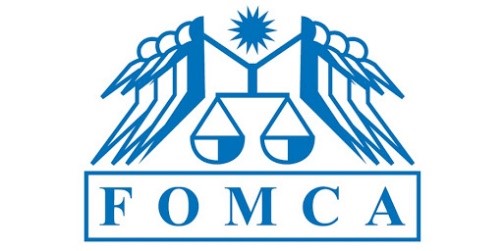
Dear Editor,
PRESS RELEASE: URBAN RENEWAL ACT MUST BE REVAMPED — GOVERNMENT AND MPs MUST HEAR THE RAKYAT BEFORE TABLING
The Federation of Malaysian Consumers Associations (FOMCA) strongly urges the Government not to table the Urban Renewal Act (URA) in its current form. The Act is too sensitive, too far-reaching, and too dangerous to be rushed into Parliament without a fundamental revamp and genuine stakeholder consultation. At stake are not just buildings and land but the very homes, livelihoods, and security of Malaysian families.
While urban renewal can bring positive benefits such as modernising infrastructure and upgrading public amenities, Malaysia is not ready for such a sweeping law. On the ground, developers have already been approaching residents with half-truths and promises that are either misleading or incomplete. Too often, critical details on compensation, relocation, or project timelines are hidden, leaving homeowners unable to make informed decisions. Even more troubling, there are instances of intimidation where residents feel pressured to sign consent documents. For most Malaysians, a home is their largest lifetime investment, built through decades of hard work and representing priceless family memories. To expose citizens to such risks without strong safeguards is unacceptable.
If the URA is introduced in its current state, it will tilt the balance dangerously in favour of developers, effectively becoming a developers’ charter instead of a people’s charter. FOMCA insists that a 95 percent consent threshold is the only acceptable safeguard. Any lower threshold — whether 75 or 80 percent — would open the door to forced displacement. In a 100-unit block, for instance, an 80 percent threshold would mean 20 families could lose their homes against their will. These dissenters are not obstacles; they may have very valid reasons — financial constraints, deep sentimental ties to their homes, or distrust in the compensation process. A 95 percent safeguard ensures that redevelopment can only proceed with overwhelming community support and compels developers to negotiate fairly instead of forcing through projects with a slim majority.
Langkah wajib papar preskripsi dan bil perubatan lindungi pengguna
- Details

Ketua Pegawai Eksekutif FOMCA Dr Saravanan Thambirajah berkata langkah ini penting untuk melindungi pengguna daripada caj tersembunyi.
Beliau menegaskan langkah ini tidak mencabar hak profesional doktor tetapi memastikan perkhidmatan kesihatan berfokuskan pesakit.
“Kajian menunjukkan pengguna boleh jimat 40 hingga 50 peratus jika harga ubat dikawal,“ katanya.
Perbelanjaan kesihatan swasta semakin meningkat sama ada melalui insurans atau bayaran terus oleh pengguna.
Saravanan berkata ketelusan dalam bil perubatan penting untuk mengelak amalan tidak beretika.
Read more: Langkah wajib papar preskripsi dan bil perubatan lindungi pengguna
Itemised billing ensures healthcare remains patient-focused, says Fomca
- Details
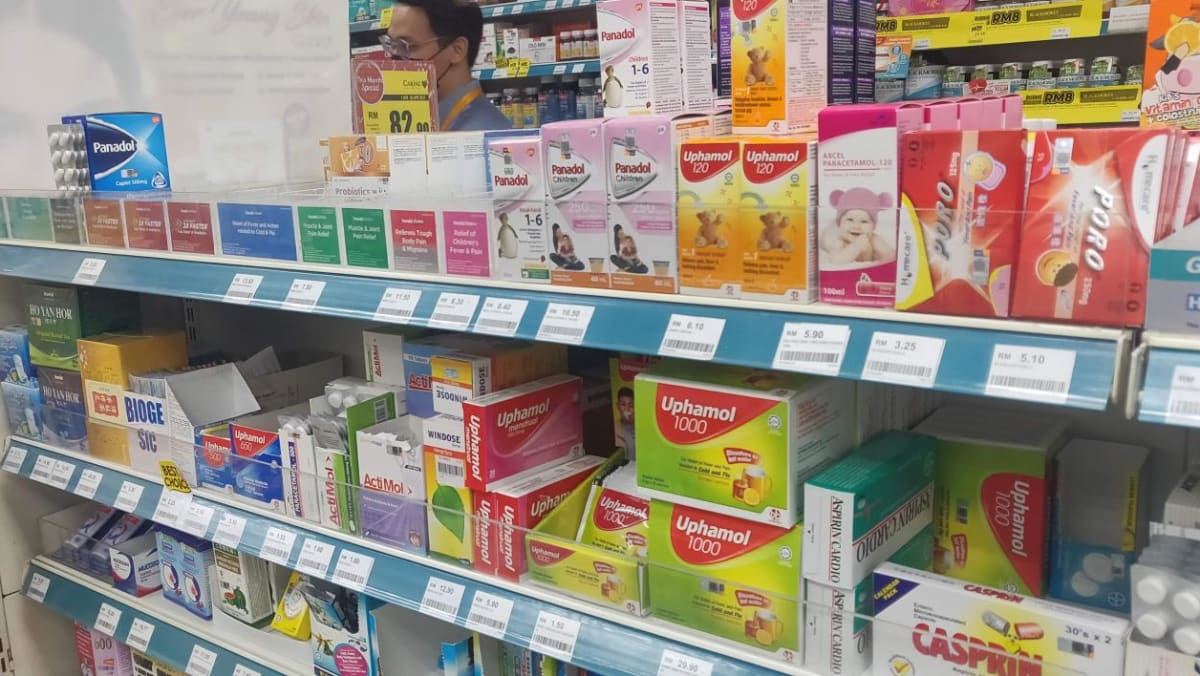 PETALING JAYA: Itemised bills for every consultation and medical charges at private clinics do not undermine clinical practice but ensure healthcare remains patient-focused and ethically delivered, says the Federation of Malaysian Consumers Associations (Fomca).
PETALING JAYA: Itemised bills for every consultation and medical charges at private clinics do not undermine clinical practice but ensure healthcare remains patient-focused and ethically delivered, says the Federation of Malaysian Consumers Associations (Fomca).
Its chief executive officer, Dr T. Saravanan, said issuing a detailed bill empowers patients with the knowledge to compare prices or seek more affordable outlets.
“It dismantles the information asymmetry that has long allowed profiteering under the guise of medical convenience,” he said in a statement on Friday (August 8).
Saravanan added that consumers, especially the elderly, the chronically ill, and lower-income groups, have long been voiceless and disadvantaged due to opaque pricing.
“The government’s reform restores their agency, reduces unjust markups, and brings our healthcare system up to international standards,” he said.
Read more: Itemised billing ensures healthcare remains patient-focused, says Fomca
Itemised billing ensures healthcare remains patient-focused, says Fomca
- Details
 PETALING JAYA: Itemised bills for every consultation and medical charges at private clinics do not undermine clinical practice but ensure healthcare remains patient-focused and ethically delivered, says the Federation of Malaysian Consumers Associations (Fomca).
PETALING JAYA: Itemised bills for every consultation and medical charges at private clinics do not undermine clinical practice but ensure healthcare remains patient-focused and ethically delivered, says the Federation of Malaysian Consumers Associations (Fomca).
Its chief executive officer, Dr T. Saravanan, said issuing a detailed bill empowers patients with the knowledge to compare prices or seek more affordable outlets.
“It dismantles the information asymmetry that has long allowed profiteering under the guise of medical convenience,” he said in a statement on Friday (August 8).
Saravanan added that consumers, especially the elderly, the chronically ill, and lower-income groups, have long been voiceless and disadvantaged due to opaque pricing.
“The government’s reform restores their agency, reduces unjust markups, and brings our healthcare system up to international standards,” he said.
Read more: Itemised billing ensures healthcare remains patient-focused, says Fomca
(BM) FOMCA SIARAN MEDIA: KETELUSAN DALAM PENJAGAAN KESIHATAN SWASTA - ‘PRESKRIPSI’ YANG SEKIAN LAMA DIPERLUKAN
- Details
TARIKH SIARAN: 8 OGOS 2025
 Kepada Ketua Editor,
Kepada Ketua Editor,
SIARAN MEDIA: KETELUSAN DALAM PENJAGAAN KESIHATAN SWASTA - ‘PRESKRIPSI’ YANG SEKIAN LAMA DIPERLUKAN
Langkah kerajaan untuk mewajibkan pemberian preskripsi ubat dan bil terperinci di fasiliti penjagaan kesihatan swasta bukan sahaja wajar dipuji, malah perlu diberikan sokongan sepenuhnya. Malaysia sekian lama mengamalkan sistem kesihatan dua aliran: sektor awam yang bersubsidi dan mudah diakses, serta sektor swasta yang berasaskan kaedah pasaran di mana bayaran secara tunai oleh pengguna masih menjadi amalan utama. Malah, hampir separuh perbelanjaan penjagaan kesihatan negara berdasarkan daripada poket pengguna, dengan lebih kurang 35 peratus dibayar sendiri oleh pengguna (out-of-pocket)—situasi ini jelas menunjukkan betapa mudahnya pengguna menjadi mangsa dalam sistem yang tidak telus ini.
Dari sudut makroekonomi, inflasi kos perubatan di Malaysia melonjak kepada 12.6 peratus pada tahun 2023, iaitu dua kali ganda purata global sebanyak 5.6 peratus. Lonjakan ini banyak dipacu oleh caj tidak terkawal daripada sektor swasta. Bank Negara Malaysia telah menegaskan bahawa ketelusan harga yang lebih baik—termasuk pemaparan harga ubat dan prosedur serta bil terperinci—adalah penting untuk membendung kenaikan ini dan melindungi pengguna.
Dari segi mikro pula, keadaannya lebih membimbangkan. Kajian daripada sumber yang boleh dipercayai menunjukkan bahawa harga ubat untuk penyakit biasa di sektor swasta boleh mencecah beberapa hari gaji. Sebagai contoh, harga ubat antihipertensi tertentu dari jenama asal (innovator) di sektor swasta boleh mencecah sehingga 2.3 hari gaji, manakala versi generik pula antara setengah hingga satu hari gaji. Ini merupakan beban yang sangat berat bagi golongan berpendapatan rendah. Di sesetengah klinik, untung atas angin bagi ubat generik boleh mencecah melebihi 100 peratus—yang bermakna kos rawatan asas meningkat dua kali ganda disebabkan oleh keuntungan tersembunyi.
Page 3 of 111













